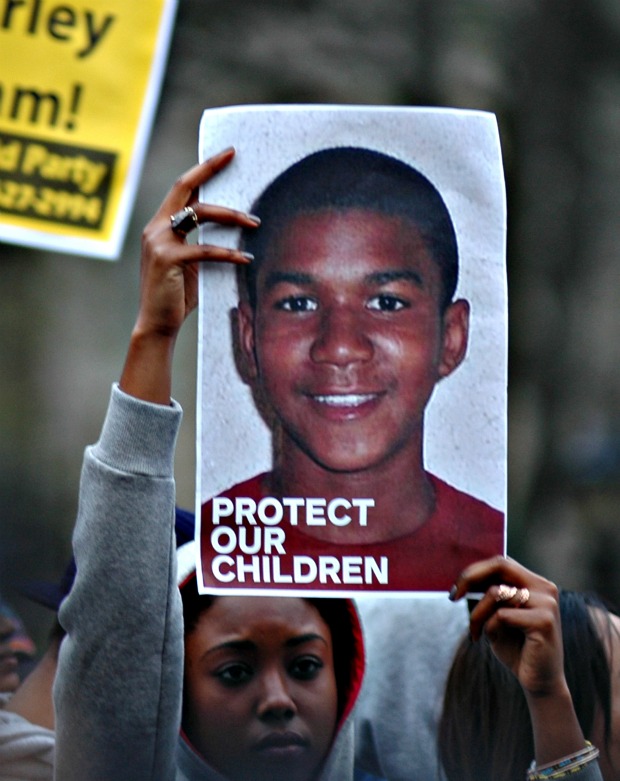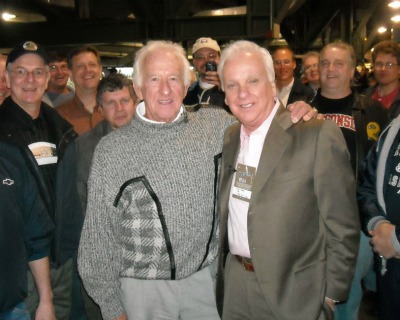Thank God Fox News is around to remind us how absurd some conservatives can be.
On Monday night’s O’Reilly Factor, Fox News host Bill O’Reilly’s guests included a number of voices speaking about the Trayvon Martin case, in which last month a black teenager walking (presumably home) while carrying snacks one night in Florida was shot and killed by an armed community patrol officer. The man who killed him – George Zimmerman – claims under the state’s “Stand Your Ground” law that the act was committed in self-defense, even though a call to 911 reveals that Zimmerman followed a fleeing Martin despite instructions by emergency agents to not do so (and that a racial slur may have been used when tracking him). The killing – or more accurately, the decision thus far by police to not arrest Zimmerman – has sparked outrage among many in America’s black community who view the case as symptomatic of the country’s continued institutional racism. As such, it has garnered the attention of America’s media.
Fast-forward to Fox News contributor (and former Emmy-award winning journalist) Bernard (“Bernie”) Goldberg yapping away on the O’Reilly Factor, criticizing the “elite liberal media” for giving too much attention to the case. His argument is that “black-on-black crime” (which is responsible for most deaths of black Americans) goes under-reported. Goldberg claims such crimes don’t garner the same outrage from civil rights leaders like the Reverend Al Sharpton and Jesse Jackson, both of whom have led rallies for the thousands who have descended upon Sanford, Florida in protest of what they see as the police and government’s inaction and injustice. Though I loathe giving Goldberg any sort of promotion, you can read most of his case – and the argument he made on the show – here on his website.
This should hopefully come as no surprise to anyone, but I’m not a regular Fox News viewer. Still, sometimes I think it is important to sneak a peek at how “they” think. Most of what I hear I find laughable. However, Goldberg’s comments really struck a raw nerve. Goldberg – in all his chutzpa – juxtaposed the Martin case with that of a black toddler killed in what one can presume was a drive-by shooting involving gangs. (He also assumes that the shooter must have been black, and refers to it as black-on-black crime.) In trying to understand why the media focuses so much attention on the Martin case, but no attention on the toddler case, Goldberg forgets one significant difference, namely that the Martin’s case involve an armed representative of the majority shooting to death an unarmed member of the minority. Black Americans don’t need a white Fox News commentator reminding them that their communities have problems, many of which stem from socio-economic vulnerabilities. What they need from him is to realize the difference.
The analogy was insulting and reminded me that the majority – errr, correction: the white, male majority – just doesn’t get it. They don’t get institutional racial injustice. Goldberg and others like him are so far removed from the narrative that they must only imagine the narrative to be a fantasy, made-up for the sake of convenience (and apparently the enjoyment of the liberal media).
Late last week, U.S. President Barack Obama – America’s first black leader – chimed-in on the Trayvon Martin story.
[youtube]http://www.youtube.com/watch?v=ueWsjzbwOxQ[/youtube]
Did he do so for political reasons? Unlikely. Did he think he’d get more votes? Probably not. Some 95 percent of Black Americans voted from him in 2008. Did he think continued silence might backfire? Perhaps. Still, whatever the reason, the brief words he spoke touched many people. Keeping a distance from the story – as was probably right for a person of his stature – he simply said, “If I had a son, he’d look like Trayvon.” That’s not a literal statement: Obama doesn’t really think that genetically he and Michelle would have conceived a boy with similar features. What he was saying was that as a black man growing up in America, he remembers what is was like to be gawked-at in shops as if you were suspicious, he remembers the difficulties in getting a cab late a night, he knows that stories of black men being disproportionally locked-up in American jails, he knows the black American mothers who worry as they send their sons out that some trigger-happy slightly-nervous member-of-the-majority might shoot them. Trayvon Martin could have been his son – figuratively. But he could have never been Goldberg’s son because Goldberg doesn’t know these people, he’s never heard them, he repeatedly dismisses their narrative and did so once again.
Make no mistake: America is not an integrated utopia that many would have you believe. It is very ghettoized, with many black Americans still living on the margins of society. Goldberg is living in one America, these people– Travyon Martin’s family – are living in the other.
When I was black…
I often joke that when I was little, I used to be black. The truth is, for a few years, growing up, one of my best friends in school was a black kid named Jerome. I would spend almost every weekend with Jerome and his extend family: cousins, aunts, uncles, grandparents. I would leave at the start of the weekend and come back at the end. I ate their food, used their showers, spoke up in their arguments, laughed at their jokes. But one day in the park with the whole extended family, while laughing, someone turned to me and said, “You know you’re not black, right?” I was speechless. Fine, I didn’t really think I was black. But I didn’t know I wasn’t, either. Meaning, I was aware that I looked different than they did, but I hadn’t yet digested the concept of race. It was foreign to me. I remember that moment as the loss of some sort of innocence. That moment, I remember learning race. And if you can learn race, you can learn racism.
Years later, I worked for one year at the Anti-Defamation League, where a wonderful woman who was in charge of educational programs that brought Los Angeles’ Jewish and black students together once told me why she does what she does. She said that if racism can be learned, it can also be unlearned. And the way to do so was through interaction, through recognition. Admittedly, I guess I have always had that drive for interaction, for recognizing the other. I grew up in a Jewish household, the grandson of Holocaust survivors. My mother insisted on avoiding anything German, and thus one family trip across Europe once meant having to drive around Germany so as not to cross through. Of course, what did I do in high school? I studied German. I figured it couldn’t hurt to understand Germans and German culture… in German. Years later, I drew the same conclusion as an Israeli who went to work at Al Jazeera. I knew it would be a challenge, but one worth taking if I was every to begin understanding the Arab world… and Arabs. And in the past two years, I made a similar venture – though perhaps one not as controversial – by working for the Chinese media. I figure: China is the future, so it’s best to start understanding it sooner than later.
I’ve always had a preference for understanding-from-the-inside that which I don’t understand at all. I don’t want someone to tell me Germans think that x, y, z. I want to hear the Germans say it. I don’t like someone telling me that Arabs believe this and think that. I want to experience it for myself. I don’t want people to explain China to me. I want to sense China from my Chinese colleagues. Goldberg and his colleagues do none of that. They judge the world, they judge the black community, they judge the murder of Travyon Martin … all through the comforts of their own shoes. That is the convenience of majority.
Oddly enough, hours earlier I was at an event that stuck me with a parallel tone. +972’s Aziz Abu Sarah was moderating a panel at the J Street Conference. Among the participants were two Palestinian citizens of Israel who, along with Aziz, effectively said to Israelis (and American Jews): you don’t see us, we are an invisible minority to you. After hearing this discussion and connecting it to my thoughts on Goldberg, I wondered if Israelis don’t react to the injustice of many Palestinians because, like Goldberg, they enjoy the convenience of the majority? If an armed representative of that majority shots and kills an unarmed member of this minority, do Israelis ignore it because it is not their narrative? Could Benjamin Netanyahu, who leads all of Israel – including its Palestinian citizens – ever rightly claim that if he had a son, he’d look like a Palestinian Trayvon Martin? Could any Israeli leader ever do that?
At the moment, they can’t. Half a century of life as the majority has made most Israelis forget or unaware of the vulnerabilities of life in the minority. They can’t understand that story any more than Goldberg can understand the Martin family’s narrative, as he illustrated through his dismissive responses on Fox News. And that, I would argue, for the sake of Israel’s future is their greatest challenge.


